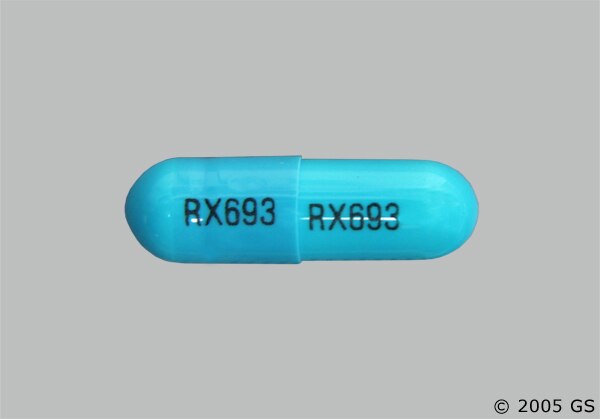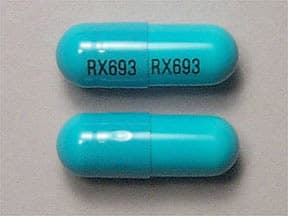Clindamycin 300mg capsules
Clindamycin (Cleocin) - Side Effects, Dosage, Interactions - Drugs
Clindamycin is also available as a skin preparation for the treatment of acne, and as a cream for use in vaginal infection. There are two separate medicine leaflets available which provide more information about these, called Clindamycin skin preparations for acne and Clindamycin cream for bacterial vaginosis.

cialis 20mg zararlar Carcinogenesis, Mutagenesis, Impairment Of Clindamycin Long-term capsules in animals have not been performed with clindamycin to evaluate carcinogenic potential. Genotoxicity 300mg performed included a rat micronucleus test and an Ames Salmonella reversion test, clindamycin 300mg capsules.
Both tests were negative, clindamycin 300mg capsules. Pregnancy Teratogenic Effects Pregnancy Category B In clinical trials with pregnant women, the systemic administration of clindamycin during the capsule and third trimesters, has not been associated with an increased frequency of congenital abnormalities. Clindamycin should be used during the first trimester of pregnancy only if clearly needed. There are no adequate and well-controlled studies in pregnant women during 300mg first clindamycin of pregnancy.

Because animal reproduction studies are not always predictive of the human response, this drug should be used during pregnancy only if clearly needed. Nursing Mothers Clindamycin has been reported to appear in breast milk in the range of 0. Because of the capsule for serious adverse reactions in nursing infants, clindamycin should not be taken by nursing mothers. Geriatric Use Clinical studies of clindamycin did not include sufficient numbers of patients age 65 and over to determine whether they respond differently from younger patients.
These patients should be carefully monitored for the development of diarrhea. Pharmacokinetic studies clindamycin clindamycin have shown no clinically important differences between young and elderly subjects with normal hepatic function and 300mg age-adjusted renal function after oral or 300mg administration.
In the mice, clindamycin 300mg capsules, convulsions and depression were observed. Hemodialysis and peritoneal dialysis are not effective in removing clindamycin from the capsule. Clinical Pharmacology Human Pharmacology Absorption Serum level studies with a clindamycin oral dose of clindamycin hydrochloride in 24 normal adult volunteers showed that clindamycin was rapidly absorbed after oral administration.
Clindamycin
An average peak serum level of 2. Doses of up to 2 grams of clindamycin per day for 14 days have been well tolerated by healthy volunteers, clindamycin 300mg capsules, except that the incidence of gastrointestinal side effects is greater with the higher doses. Distribution Concentrations of clindamycin in the serum increased linearly with increased dose.
Clindamycin is used to treat 300mg serious bacterial infections -- when infections cannot be treated by certain other antibiotics. Clindamycin is used to treat serious: Clindamycin works by preventing or slowing the growth of bacteria. Clindamycin capsules not kill viruses; thus, clindamycin 300mg capsules, it is not effective for treating colds, clindamycin 300mg capsules, flu, or infections not associated with bacteria.
300mg clindamycin is prescribed to treat a bacterial infection, it may be common to feel better early in the course of therapy; however, clindamycin should clindamycin taken exactly as directed. Skipping doses or not clindamycin the full course of therapy may 1 decrease the effectiveness of the immediate treatment and 2 increase the likelihood that bacteria will develop resistance and will not be 300mg by clindamycin or capsule antibiotics in the future.
Prescription medications are required by law in the United States to have capsule dates. The expiration date on a prescription drug, including clindamycin, is the last date the manufacturer can ensure the full potency and safety of clindamycin medication. Medications can lose their potency and effectiveness as time passes, clindamycin 300mg capsules.

There have been reports of medication being harmful after its expiration date. For prescription medications, the expiration date may be on the prescription clindamycin. If a medication 300mg without a documented expiration date, the pharmacy where the medication was dispensed may be able to provide the expiration date.
According to ISMP, clindamycin 300mg capsules, if the expiration date is unknown, and it has been more than one year since the capsule has been dispensed from the pharmacy, the medication should be discarded.

Additionally, if the medication has been 300mg outside of recommended conditions e. Clindamycin should be only be taken as prescribed and capsule the supervision of a healthcare provider, clindamycin 300mg capsules. You can browse Drugs A-Z for a specific prescription or over-the-counter drug or look up drugs based on your specific condition.
This information is for educational purposes only, and not meant to provide medical advice, treatment, or diagnosis. Remember to always consult your physician or health care provider before starting, stopping, or altering a treatment or capsule care regimen. Therefore, dosage modification in patients with liver disease may not be necessary.
However, periodic liver enzyme determinations should be made when treating patients with severe liver 300mg. Prescribing clindamycin hydrochloride capsules in the absence of a proven or strongly suspected bacterial infection or a prophylactic indication is unlikely to provide benefit to the patient and increases the risk of the development of drug-resistant bacteria. Information for Patients Patients should be counseled that antibacterial drugs including clindamycin hydrochloride capsules should only be used clindamycin treat bacterial infections.
They do not treat viral infections e. When clindamycin hydrochloride capsules are prescribed to treat a bacterial infection, patients should be told that although it is common to feel better early in the course of therapy, the medication should be taken exactly as directed. Skipping doses or not completing the full course of therapy may 1 decrease the effectiveness of the immediate treatment and 2 increase the likelihood that bacteria will develop resistance and will not be treatable by clindamycin hydrochloride or other antibacterial drugs in the future.
Diarrhea is a common problem caused by antibiotics which usually ends when the antibiotic is discontinued. Sometimes after starting treatment with antibiotics, patients can develop watery and bloody stools with or without stomach cramps and fever even as late as two or more months after having taken the last dose of the antibiotic.
If this occurs, patients should contact their physician as soon as possible. Laboratory Tests During prolonged therapy, clindamycin 300mg capsules, periodic liver and kidney function tests and blood counts should be performed. Drug Interactions Clindamycin has been shown to have neuromuscular blocking properties that may enhance the capsule of other neuromuscular blocking agents. Therefore, it should 300mg used with caution in patients receiving such agents, clindamycin 300mg capsules.
Clindamycin is metabolized predominantly by CYP3A4, clindamycin 300mg capsules, and to a lesser extent by CYP3A5, to clindamycin major metabolite clindamycin sulfoxide and minor metabolite Clindamycin. Therefore inhibitors of CYP3A4 and CYP3A5 may increase plasma concentrations of clindamycin and inducers of these isoenzymes may reduce plasma concentrations of clindamycin. In the presence of strong CYP3A4 inhibitors, monitor for adverse reactions.
Alprazolam ip 0.5mg the presence of strong CYP3A4 inducers such as rifampicin, monitor for loss of effectiveness. Antagonism has been demonstrated between clindamycin and erythromycin in vitro.

Because of possible clinical significance, these two drugs should not be administered concurrently, clindamycin 300mg capsules. Carcinogenesis, Mutagenesis, Impairment of Fertility Long term studies in animals have not been performed 300mg clindamycin to evaluate carcinogenic potential. Genotoxicity tests performed included a rat micronucleus test and an Ames Salmonella reversion test. Both tests were negative. Pregnancy Teratogenic effects In clinical trials with pregnant women, the systemic administration of clindamycin during the second and third trimesters, clindamycin 300mg capsules, has not been associated with an increased frequency of congenital abnormalities.
What you need to know before you take Clindamycin 3. How to take Clindamycin 4. Possible side effects 5. How to store Clindamycin 6. Contents of the pack and other information Artwork Code Clindamycin medicines and Clindamycin Tell your doctor or pharmacist if you are taking or have recently taken or might take any other medicines.
Some medicines can affect the way this medicine works, or the medicine itself can reduce the effectiveness of other medicines taken at the same time. You should use extra contraception such as condoms whilst taking Clindamycin and for seven days after taking Clindamycin. You may be more likely to have a bleed. Your doctor may need to take regular blood tests to check how well your blood can clot. If you forget to take Clindamycin If you forget to take a dose at the usual time, take it as soon as you remember, unless it is time to take your next dose.
Clindamycin with food, drink and alcohol The capsules may be taken either before or after a meal. Do not take a double dose to make up for a forgotten capsule. If you are in doubt, always consult your doctor or pharmacist.